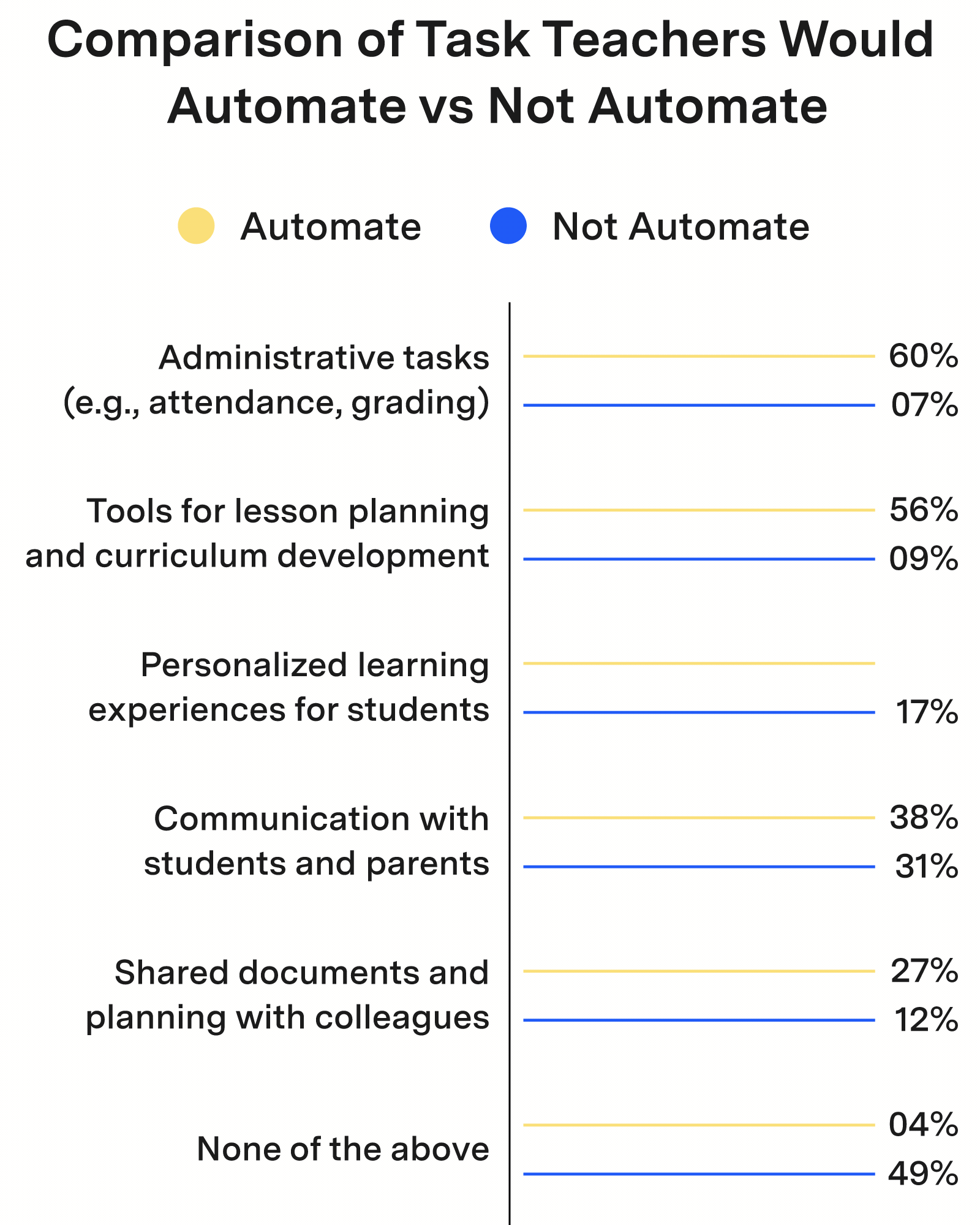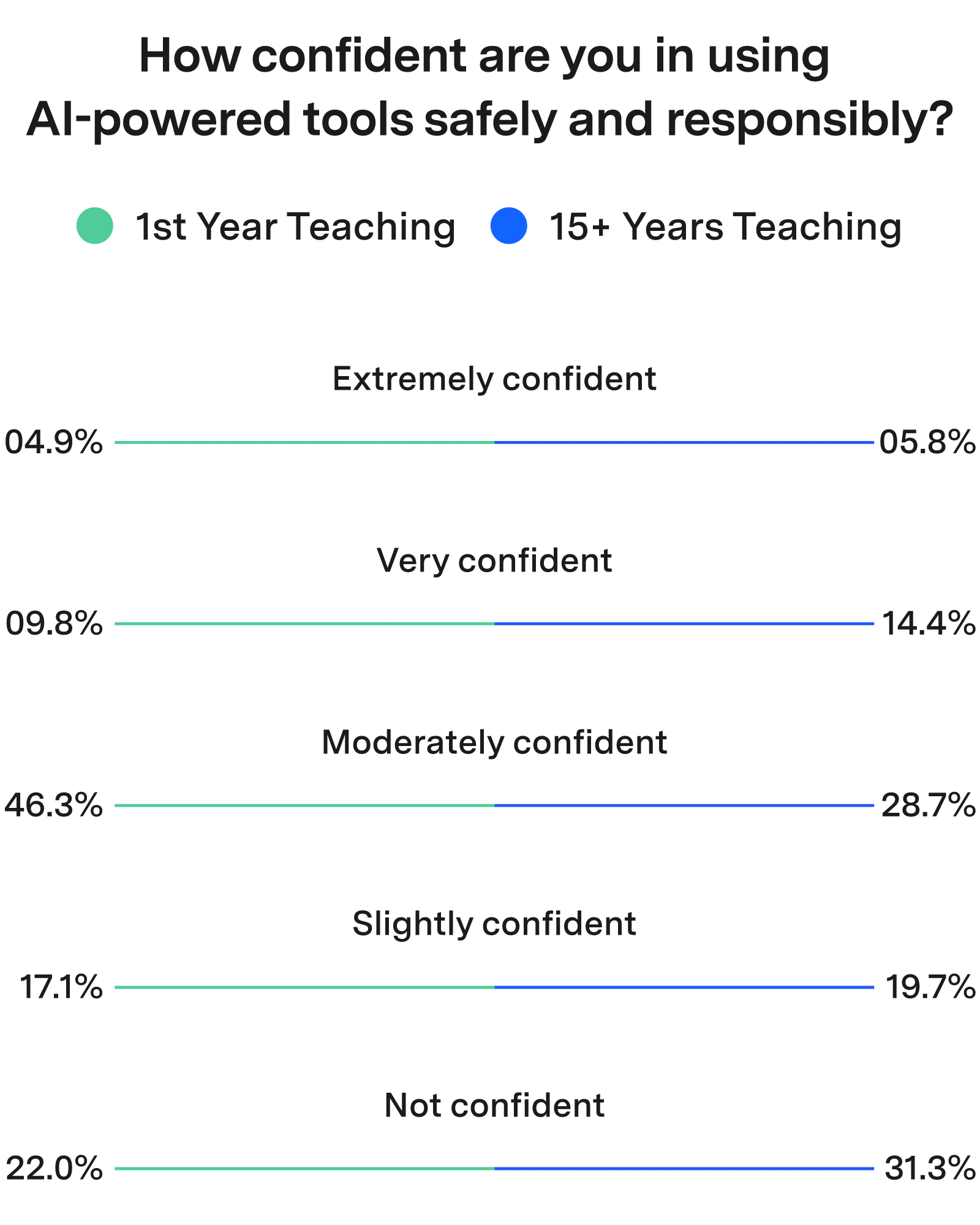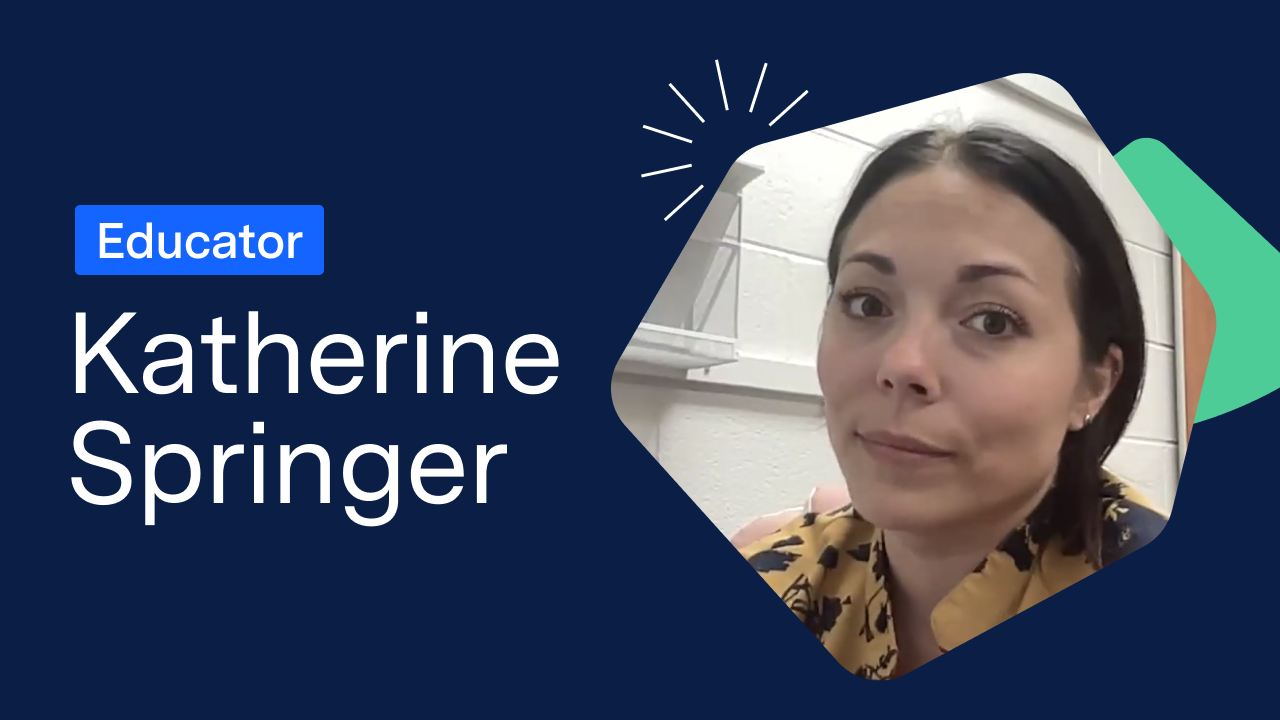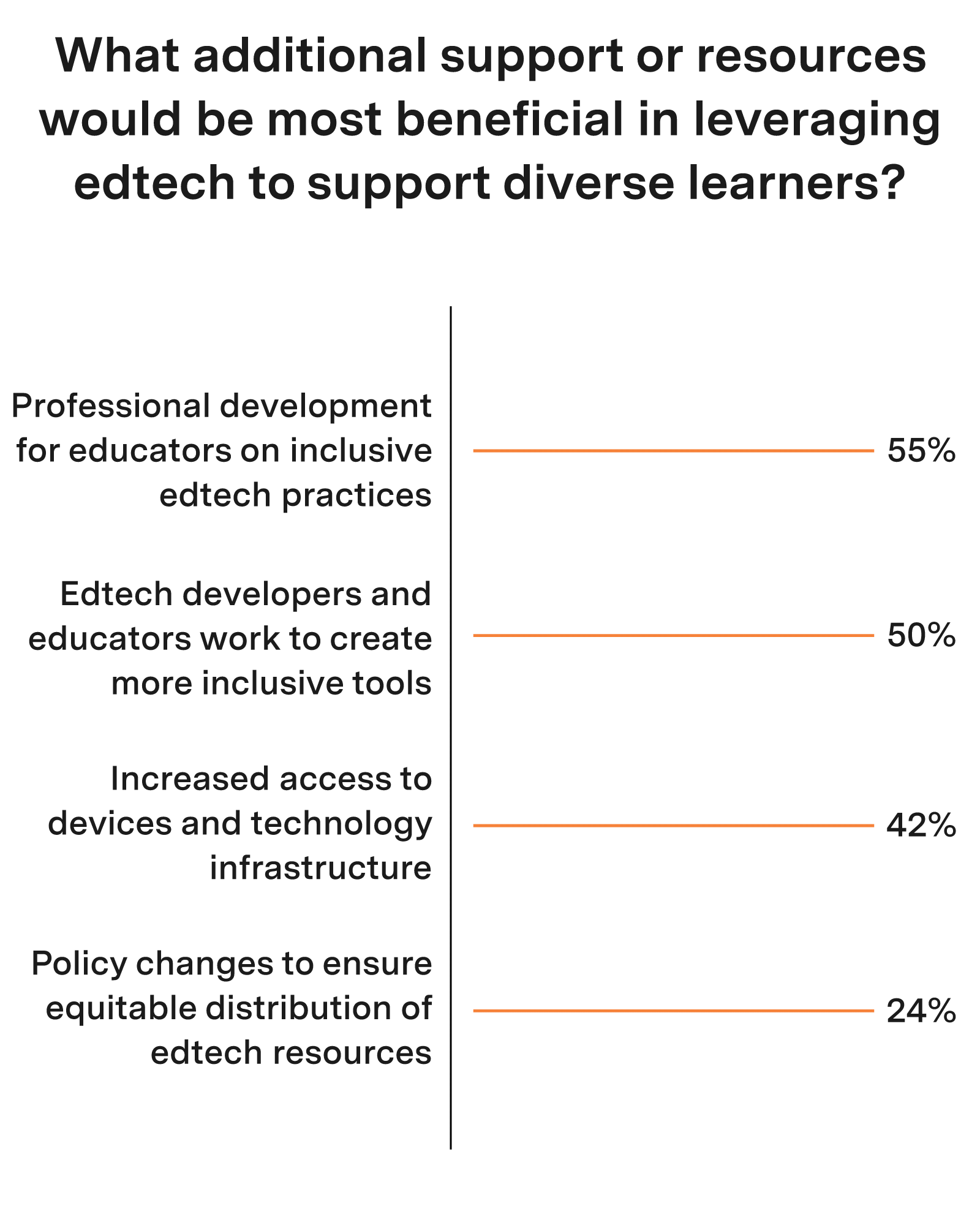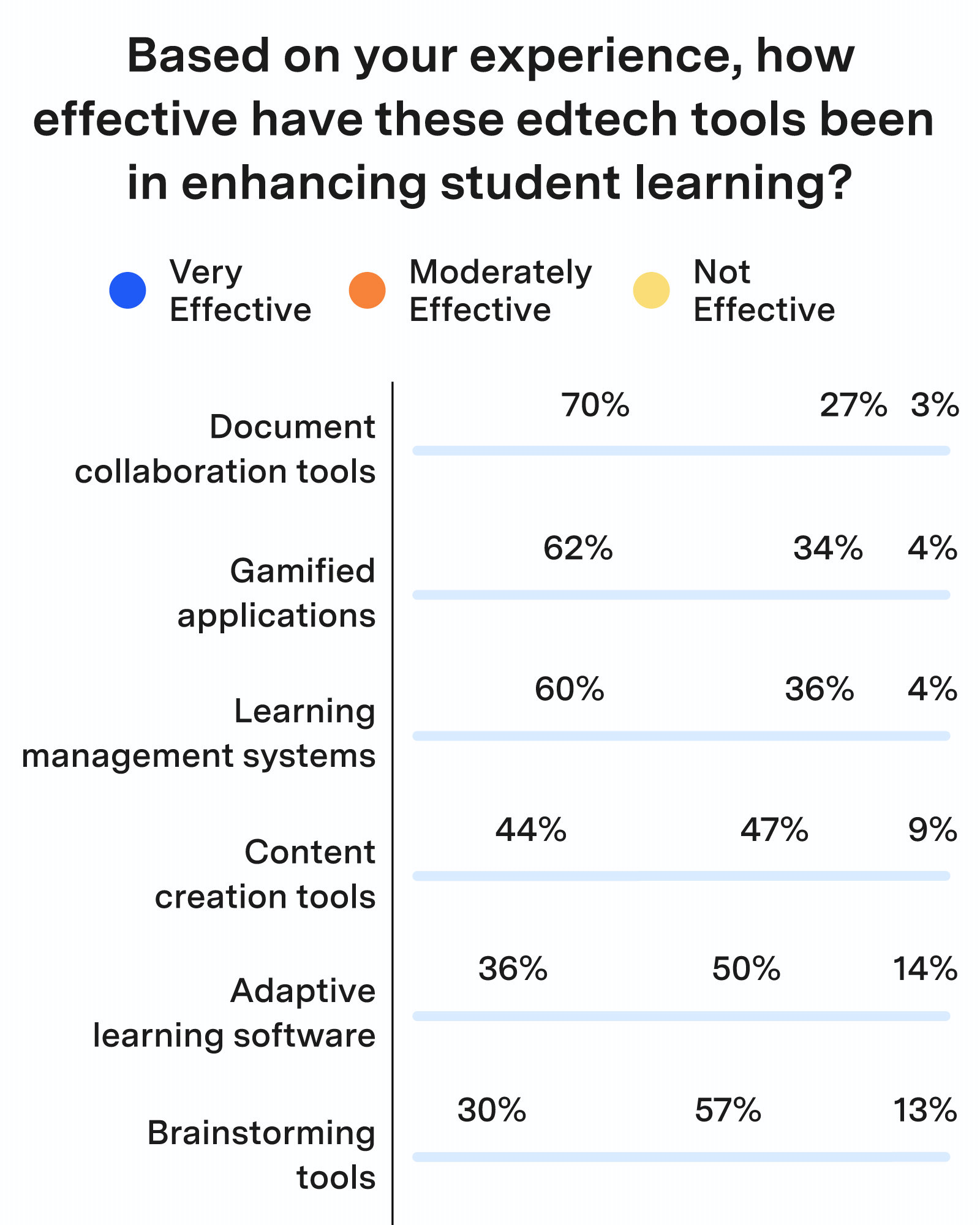“Student input is crucial in shaping our AI policies. Through focus groups and pilot programs, we discovered students use AI not for cheating, but as a tool for studying, critical thinking, and creativity. This feedback helps us guide AI use in classrooms effectively.”
Classroom of the future
Emerging Classroom Trends
We surveyed over 1,600 educators to uncover the top trends redefining education. From the AI revolution to the demand for inclusive instruction, this report delivers essential insights to drive teaching and learning forward this school year and beyond.
Educators are mixed on what technology could (and should) replace.
Despite AI optimism, some educators still lack confidence in using it responsibly.
Educators see a path to making edtech more accessible to all students.
These 3 digital tools are rated most effective for enhancing student learning.

Where do teachers draw the line on automation?

Have all educators embraced AI?
Stories of AI in the classroom
“Last year, only about 10% of our teachers were using AI, fearing it would replace them or complicate their jobs. We’ve since demonstrated how AI can be a helpful tool, like with Brisk quizzes, and now teachers are in a better headspace for implementation. Using AI has significantly reduced their stress and workload, allowing them to focus more on building important relationships with their students.”
“Districts feel safe letting students and educators explore AI with Canva because we’ve implemented strong guardrails and made it user-friendly. Educators have access to a suite of generative AI tools within the familiar Canva platform, simplifying their workflow and reducing the need for additional tools.”

When do educators choose tech over traditional methods?
Insights for your team
Superpower your strategies with key insights based on a survey of 1,600 educators. Download a shareable PDF to share and discuss with your team.
Report: 2024 Classroom Trends
Download your free copy! When providing an email address, you’ll receive periodic updates from the Clever team.
Who built this report?


Subscribe to our Cybersecure K-12 Newsletter to receive exclusive insights to safeguard school data.

More research from Clever
REPORT
Cybersecure 2024
Our 2nd annual Cybersecure Report equips decision-makers accountable for student data with the latest trends in K-12 cybersecurity synthesized from intelligence gathered from over 800 district technology leaders. Read the report to gain critical insight that can aid your security planning for 2024 and beyond.

















